Writing as a life form: A Review of Richard Zenith’s Pessoa: A Biography (2021)
Manuel Portela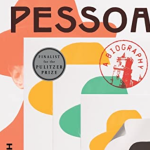
For Fernando Pessoa, as for the roughly 600 texts that make up his Book of Disquiet, and the estimated 136 heteronyms that Pessoa inhabits in his own writing, there "is life, and there is writing, and they must remain immiscible." Richard Zenith's attentive biography of Pessoa succeeds, in the words of Portuguese literary scholar Manuel Portela, in "forming a homogeneous mixture" when all of the names and textual experiences are brought together in a single, biographical narrative.
A Loving Screed for Jeremy Hight
Patrick Lichty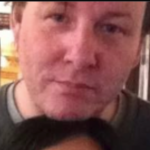
In this in memoriam, Patrick Lichty remembers community member and artist, the late Jeremy Hight. We at EBR remember Jeremy fondly. His creative works will continue to be respected for the contributions they make to e-literature.
Generative Unknowing: Nathan Allen Jones’ Glitch Poetics
Richard A. Carter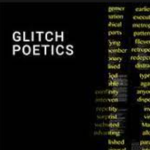
In his review of Glitch Poetics, Richard Carter finds more than a close reading of contemporary e-lit and AI enhanced writing. In a book that is both aesthetic and machinic, critical and creative, Jones explores the nature of writing itself "and, indeed, reading, in an environment saturated by the rhythms and predilections of digital code."
Review of The Lab Book: Situated Practices in Media Studies
Jason Lajoie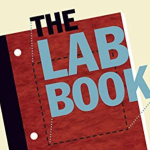
What is a humanities lab? How do we distinguish between a lab in the humanities and a lab in STEM--especially in various lab processes and factors that include "technicians, technologies, traditions, techniques, and trajectories"? In his review of Darren Wershler, Lori Emerson, and Jussi Parikka's book The Lab Book, Jason Lajoie outlines the ways in which labs and lab culture have expanded to make room for making.
Review of Broken Theory by Alan Sondheim
Aden Evens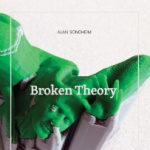
In his review of Broken Theory by new media artist and theorist Alan Sondheim, Aden Evens traces Sondheim's eclectic and stylistic meditations on the limits of philosophy, language, and code, expressed through the author's experimental art and research projects. Sondheim's fragmentary monograph and Evens' review by extension explore the inevitability of failure as an 'ontological guarantee' and suggest writing as a necessary—albeit inadequate and unfulfilling—response.
United Forces of Meme in Spontaneous Netprov (or how many tweets it takes to transform #Kaliningrad into #Kralovec)
Anna Nacher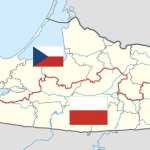
Anna Nacher explores the emergence and spread of the viral hashtag "Kralovec," a satirical Czech language meme protesting the Russian annexation of Ukrainian territory in September 2022. In discussing the social and political impact of memes as collaborative sites of making meaning through media, Nacher analyzes the "creative frenzy" that emerges when protest becomes memetic.
Riderly waves of networked textual improvisation: an interview with Mark Marino, Catherine Podeszwa, Joellyn Rock, and Rob Wittig.
Rob Wittig, Anna Nacher, Joellyn Rock, Cathy Podeszwa, Mark Marino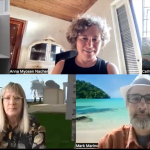
Anna Nacher chats with Mark Marino, Cathy Podeszwa, Joellyn Rock, and Rob Wittig—artists, designers, and new media theorists all—to discuss the impetus and impact of their long-running netprov collaborations (communal and improvisational creative writing conducted online). Interview conducted October 2022.
Weirding Winona: iDMAa 2022 Weird Media Exhibition
Melinda M. White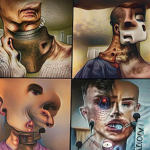
Melinda M. White's itinerary through the iDMA 2022 Weird Media Exhibition in Winona consider the various forms of weirdness or strangeness evoked by the exhibited works. She explores how strangeness characterises human relationship to constantly transforming technologies, how it manifests itself in our difficult pasts, and how it points to alternative of unexpected futures. While the weird encounters with the exhibition works in no way point to a single, unifying thread or approach to the theme, White's account reveals shared concerns, tendencies, and connections among them. Temporal distance and experiences of loss render familiar technologies, objects, or places unfamiliar; the borders between human and non-human entities and perspectives is blurred or even discarded; humor and surreal irreverence are employed to raise urgent questions on ecology, ethics, and individual or collective narratives and subjectivities.
Lines of Sight: Thirteen Ways of Looking at a System (Organism, Poem, or Otherwise)
Lisa Swanstrom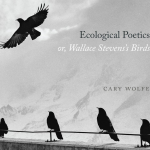
What Mario Aquilina and Ivan Callus accomplished in their "13 Ways of Looking at Electronic Literature", Lisa Swanstrom does for Ecocriticism. Taking as her starting point, Cary Wolfe's book on Wallace Stevens, Swanstrom explores each and every one of Stevens's "13 Ways of Looking at a Blackbird." What emerges, alongside Wolfe's ecocriticism is a resurgence, in literary studies, of the art of close reading.
Hypertextument: reading the new Victory Garden
Mariusz Pisarski
Mariusz Pisarski takes us on a detailed tour through the cognitive intricacies of hypertext classic Victory Garden's migration from Storyspace (circa 1992) to the Web. In so doing, Pisarski observes how years of Stuart Moulthrop’s experience as a mentor and teacher of digital literature, and as a practicing hypertext scholar and writer, are built into the anniversary edition of Victory Garden.
My Life as an Artificial Creative Intelligence: an interview with Mark Amerika
Mark Amerika, Will Luers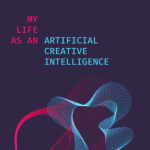
"I too am a psychic automaton." Mark Amerika, a founding publisher of ebr, shares the onto-operational sources of his (capital C) Creativity with ebr editor Will Luers.
All of the spaces collapsing: an interview with xtine burrough
Scott Rettberg, Søren Bro Pold, Anna Nacher, xtine burrough
In a series of interviews led in February and March 2021, Nacher, Pold and Rettberg examined how contemporary digital art and electronic literature responded to the pandemic. Their project on COVID and electronic literature was funded by DARIAH-EU and resulted in the exhibition prepared for the ELO 2021 Conference & Festival and the documentary film that premiered in June 2021 at the Oslo Poesiefilm Festival. xtine burrough is one of the creators of 13 works that were interviewed for the project. She generously shares her thoughts on life and creativity, collapsing spaces and the meaning of a domestic art practice during the pandemic.
Review: Conceptualisms: The Anthology of Prose, Poetry, Visual, Found, E- & Hybrid Writing As Contemporary Art, ed. Steve Tomasula. Alabama UP, 2022
Jeffrey Gonzalez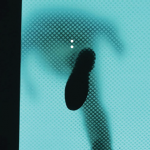
Where Tomasula (in his own words) makes “no attempt to historicize the field,” preferring to offer “a snapshot” of a vibrant body of conceptual literary art, Gonzalez in this review arrogates the position Tomasula passes on, and proposes that the many texts in Tomasula's "immensely rewarding" anthology continue in the spirit of postmodern literary forms and show the continuing potency of the postmodern toolbox.
Platforms,Tools and the Vernacular Imaginary
Will Luers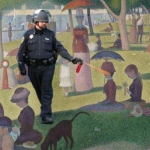
After having lived through three generations of electronic literature, and having experienced pre-web, web, and post-web literary periods, Will Luers takes a step back and advocates an "independent digital culture" in which literary artists might explore "a reality between language and the ineffable (be it artistic, religious or secular)." A mixture of technics and magics, we may be approaching a fourth generation of e-lit that is closer to pre-industrial folklore than it is to our present, technically managed space for individual and collective "creativity."
Week Three: Feminist AI
Patricia Silva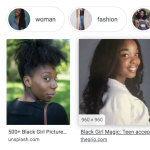
Patricia Silva explores the impact of Google’s Search algorithm on BIPOC and queer cultures and highlights the iconoclastic work of the Feminist.AI collective, a community of academics, artists, and designers who seek to empower people with ethical ways to store, use, and search information.